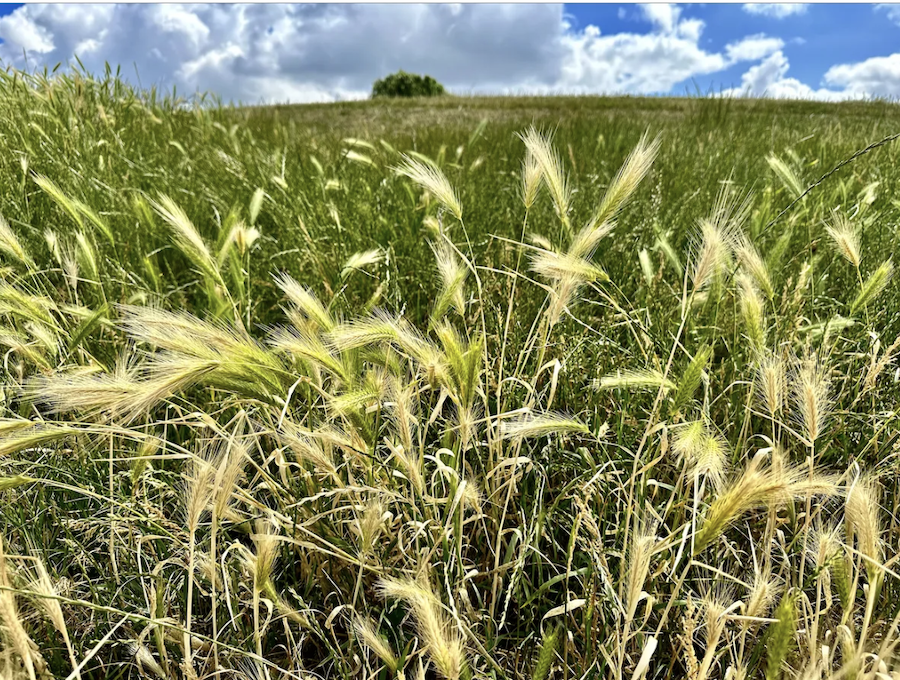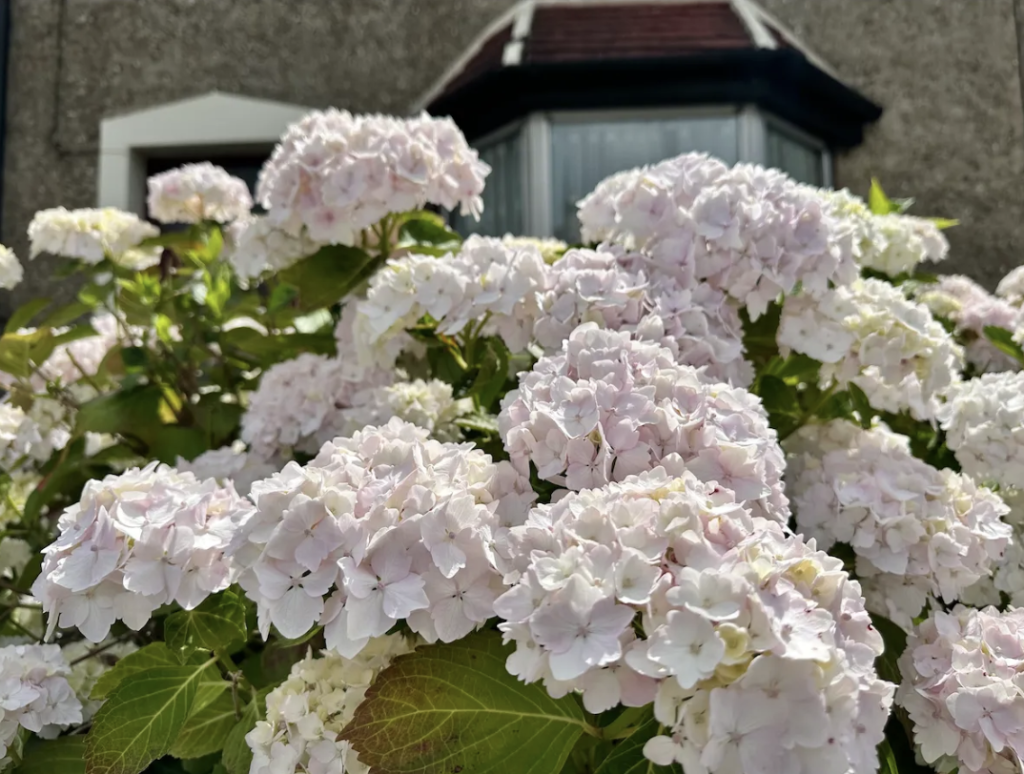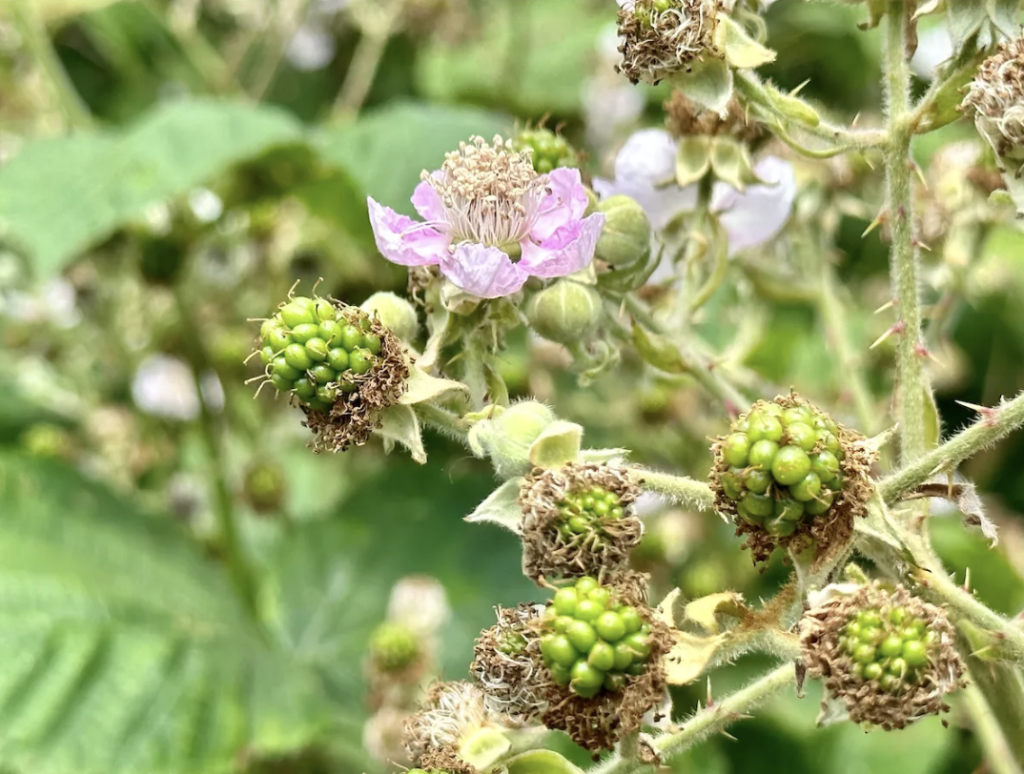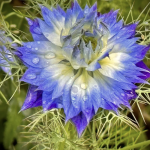On learning how technology works
Good morning. I hope this lands softly in your inbox today. On this Glastonbury weekend here in the UK, I am waking up to the sound of wind in my backyard trees and the still refreshing, gentle air of summer.
I had a long, reorientating week. This year, somehow, each week feels like a century of small steps and wonderful people who carry my work and my life forward. So, landing into the weekend with Nature in mind is so restorative.
Summer is in full swing with gentle signs of the next season. Nigella flowers slowly become pods – ever so comforting for those who love sensory gardens. Roses continue to dominate the gardens, sharing them with hydrangeas, while blackberries bloom and form the promise of fruits.

Our allotment is full of flowers and vegetables too. We eat our own peas, beetroot, courgettes, and onions. We watch the first cucumbers form and enjoy the first tomato blooms too. The first batch of potatoes is ready to pick too. Higher up, apples and pears are now plumping up while cherries, well, those surprise us daily with stunning red shine amongst green leaves. Yum!
We only have a few beds and not many crops, but we have enough to top up our weekly Riverford veg box with exciting, homegrown tastes. And trust me: homegrown does taste better.
A lot of what we enjoy right now is a result of investing time and energy into the growing process but also knowing how things work. I learn about the workings of Nature every time I do something new – just yesterday, I learned to separate water lilies, for example. It’s so exciting to do something new, understand the best way around it and complete it with a stunning result. We now have two ponds with two stunning lilies – a heritage from our kind Oxfordshire landlords (their gardens are stunning!).

There is such a parallel between Nature and technology in this regard. Both landscapes operate as magnificent, complex and, for some of us, also terrifying systems. Anxiety often comes from the lack of understanding of how those systems or their specific parts work, so we feel lost and helpless.
Let’s take, for example, deleting an update from Facebook. It is incredibly infuriating to have to delete the post, then follow the other four-five steps to delete the same content from the archive and then trash it. Clearly, the platform providers went into a lot of effort to make deleting stuff hard. It is not a user-friendly design. However, knowing that this is the process of deleting content, we may become more conscious and aware of what we post on Facebook in the first place.

One of the key aspects of digital wellbeing is understanding how digital technologies and landscapes work. Informed presence in those spaces minimises our chances of getting upset, making mistakes or exposing ourselves to harm.
(Reflection)
Today, I encourage you to reflect on your digital competencies in relation to your favourite online, possibly social media platform.
Q: What is your favourite online space to hang out? How well do you know all its key features?
Q: How well do you know your own privacy rights and settings on this platform and the copyrights of your content? Do you monitor your privacy settings regularly? Can you download all your data? Can you delete your profile quickly? Have you actually read the terms and conditions?
Q: Can you control and moderate the content others post about you, and do you do that? Do you have appropriate presets for tagging posts and photos, for example?
Q: Do you know who can see your content when you post, and to what extent can you control or play with that? Can you have levels of content visibility (close friends vs the general public)? Do you use those options?
Q: According to UK and EU GDPR, we have the right to know how our information is used in algorithmic solutions (and with the incoming AI regulation, this area will be even more regulated). Do you know how your data is used for algorithmic calculations on this platform? Is this information easy to find?
Q: Do you know and use all the functions provided in the simple option of updating the status on the platform or working with audio, video, or photographic content?
Q: Do you know what content is geo-located and what this means to your privacy and safety, but also the opportunity to locally form helpful connections and gain useful recommendations?
Q: Do you feel that you are generally quite aware of the most significant options in that space? If not, where can you find out more?
Sometimes, I think knowing digital tools is like riding a bicycle – we need to understand the mechanics of the machine.
I feel like this on a good day. On days when I read about the misuse of our online information or events, like Brexit, that resulted from a tactical misinformation campaign targeting specific social media users, I worry that we need to sharpen our digital skills to pay way more attention – sometimes to the level of what this bicycle is built from, who sold it to us and who decides how and when we can change the gears.
We do not have complete control over our online activities, but we cannot give up on the controls that we still do have and allow ourselves the opportunity to stay safe, stay connected and maybe even thrive.
I wish you a light Sunday!
This post was originally posted on Substack in our Syl’s Liberation Psychologies Newsletter.

